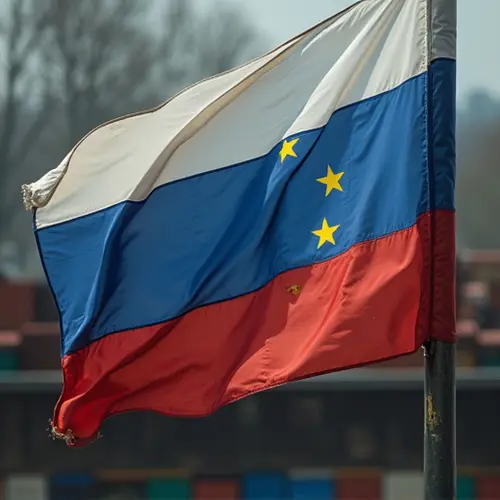
Slovakia's Controversial Constitutional Overhaul Threatens EU Legal Supremacy
The Slovak parliament is debating a groundbreaking constitutional amendment that would fundamentally challenge the European Union's legal framework. The proposed changes would establish Slovak national law as superior to EU law in matters of "national identity," marking a significant escalation in the country's ongoing political transformation under Prime Minister Robert Fico.
Contentious Provisions and Human Rights Concerns
The amendment seeks to constitutionally define only two genders and require parental consent for schools to teach about "unconstitutional subjects" such as same-sex marriage. Prime Minister Fico describes this as a "dam against progressive currents," though EU officials note these fears are unfounded as the bloc has no plans to mandate such policies.
"LGBT people are only being used as a pretext. The real intentions go much further," said queer activist Roman Samotný, referring to the broader implications of ignoring EU law.
Human rights organization Amnesty International warns the amendment would "destroy LGBT rights" and potentially endanger lives by restricting access to healthcare and abortion services. The constitutional nature of these changes would make future improvements in LGBT rights nearly impossible.
Legal Experts Sound Alarm on EU Implications
Five former Supreme Court justices and legal experts caution that the vaguely worded amendment could allow Slovakia to ignore European and international law on a much broader scale. Opposition party SaS calls it a "partial withdrawal from the EU."
Legal organization Via Iuris believes the government would gain tools to set aside EU law across numerous domains under the ambiguous "national identity" umbrella, potentially affecting education, climate policy, and scientific research.
Political Context and Coalition Challenges
This move aligns with Fico's pattern since returning to power in 2023 for his third premiership. His government has already rolled back anti-corruption measures, dismantled public broadcasting, and restricted organizational freedoms through what critics call the "Russian law."
The amendment requires 90 of 150 parliamentary votes, forcing the coalition to seek support from opposition Christian Democrats, who joined after securing promises to ban surrogacy. However, the fragile coalition faces ongoing delays as vote counts fluctuate, complicated by a lawmaker's recent death and uncertain support from coalition member Ján Ferencák.
Unlike previous mass protests against Fico's pro-Russian policies, this constitutional push has not sparked significant demonstrations, suggesting opposition forces may be weakening or divided.

 Nederlands
Nederlands English
English Français
Français Deutsch
Deutsch Español
Español Português
Português







